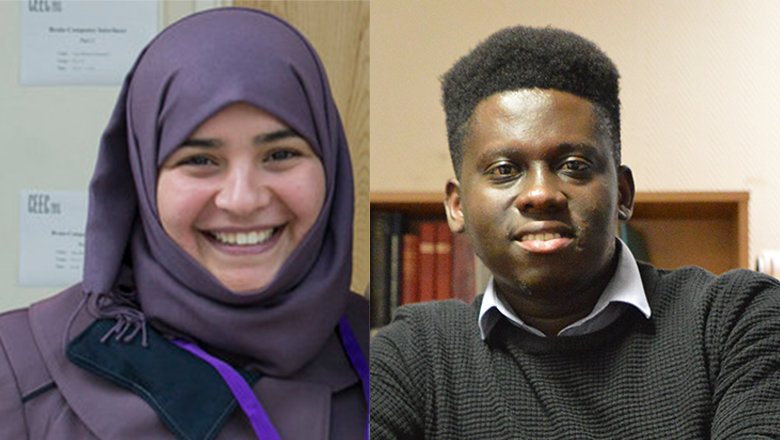The training we offer will help transform the teaching practice of 10,000 academic staff in Pakistan, fostering innovation and student-centred learning...we will support Pakistani Higher Education to build a sustainable and competitive STEM ecosystem in Pakistan, promoting economic growth and technological advancement in the region.”
Dr Tabbi Wilberforce
31 March 2025
Transforming STEM education in Pakistan and South Africa with the British Council
Engineers at King's are undertaking British Council funded projects

Engineers at King’s have been funded by the British Council to transform STEM higher education in Pakistan and address gender inequality in engineering in South Africa.
Dr Tabbi Wilberforce and Dr Naseem Ramli from the Department of Engineering will be leading projects with partner universities in Pakistan and South Africa aimed at tackling challenges in STEM education in both countries.
Dr Wilberforce and a team will train 100 academics from 100 Pakistani universities to redesign their STEM curricula to incorporate project-based, applied learning. Dr Ramli will lead five South African universities to train 100 female engineering students in digital skills, and implement mentorship and work experience schemes with industry.
Transforming learning for STEM students in Pakistan
Funded by the British Council and Pakistani Government, Dr Tabbi Wilberforce’s project will train Pakistani academics in innovative pedagogical approaches in STEM, including project-based learning and the use of AI in curricula and assessment. In so doing, this quarter of a million-pound project aims to transform approaches to delivering STEM education in Pakistan - improving the experience of up to 500,000 students as well as equipping them with the critical thinking and problem-solving skills to meet the demands of a rapidly evolving, technology-driven workplace.
Dr Wilberforce said, “project-based learning is the gold standard in equipping students with the skills and experience to go straight from university into industry and tackle complex challenges in engineering, health and other STEM-based sectors.
“The training we offer will help transform the teaching practice of 10,000 academic staff in Pakistan, fostering innovation and student-centred learning. In so doing, we will support Pakistani Higher Education to build a sustainable and competitive STEM ecosystem in Pakistan, promoting economic growth and technological advancement in the region.”
The project team includes the National STEM Learning Centre, King’s Centre for Research in Education in Science, Technology, Engineering & Mathematics, as well as academics from the Universities of Cambridge, Birmingham, Oxford, Glasgow, Warwick, Wolverhampton and Aston.
Dr Wilberforce also hopes the project will forge closer links with universities in Pakistan, including to support further collaborations in education, research, knowledge exchange and more.

Addressing the underrepresentation of female engineers in South Africa
Dr Naseem Ramli’s British Council project aims to address the stark gender imbalance in engineering in South Africa, implementing various strategies over a three-year period to encourage more women to become engineers.
Working with the University of South Africa, Durban University of Technology, Tshwane University of Technology, Cape Peninsula University of Technology, and Witwatersrand, the team will equip 100 female engineering students with essential digital skills, including programming and CAD (Computer-Aided Design) – giving them a competitive edge in the workplace.
Women are grossly underrepresented in engineering programmes and professions in South Africa...Our project will promote digital skills acquisition among women in engineering...closing the digital divide, and empowering women to contribute meaningfully to the country’s economic and technological growth.”
Dr Naseem Ramli
Furthermore, targeted outreach and mentorship initiatives amongst school students aims to boost female enrolment in engineering programs by five per cent in participating universities. Moreover, the team will connect with industry – including 10 leading engineering companies in South Africa - to offer mentorship, internships, job shadowing, and project-based learning experiences for female students.
Dr Ramli said, “Women are grossly underrepresented in engineering programmes and professions in South Africa. The situation could become even worse, with today’s engineering field requiring key digital skills, and women more much less likely than men to acquire these essential skills. This digital divide puts women at a further disadvantage in an already male-dominated field.
“Our project will promote digital skills acquisition among women in engineering and we hope ultimately increase female participation in the profession, as well as closing the digital divide, and empowering women to contribute meaningfully to the country’s economic and technological growth.”

